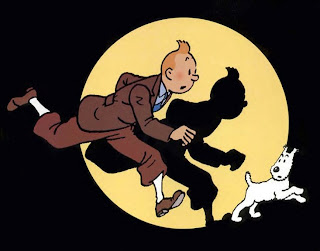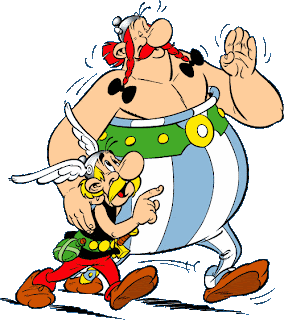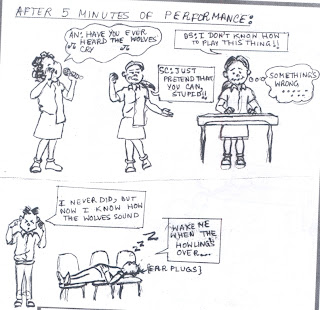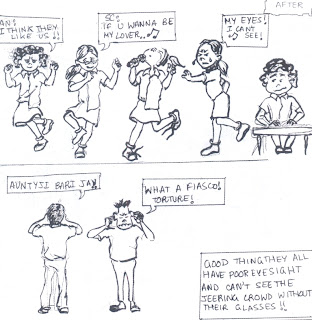So here's one of the things I've been obsessed about for so long: Graphic Novels. Call them comic books as if that's an insult, call them juvenile, call them lowbrow; but you're wrong. Because graphic novels feature some of the best writers, the most different and most freethinking ideas, storylines and artwork in contemporary fiction.(And nonfiction). And to people who love both art and literature, graphic novels are a brilliant amalgam of the two, the writing bolstered through the fantastic artwork, and the art speaking through the wonderfully written stories.
Now, I know what most people have issues with is the 'Superhero' genre-but hey, that's where comic books evolved from, and it was a novel idea in its time, and deserves some respect. I personally don't see anything wrong with a bit of fantasizing and hero-worship, in fact I'm guilty of both, having been in love with Superman for a long time. The fact is, comic book writers possess some of the most off-beat, unusual and mesmerizing imaginations, and the expression that the free flowing medium of a graphic novel gives them often results in literally mind blowing creations. All hail the comic-book nerds!
Which is why I am going to fulfill a long running wish of mine, and write a whole miniseries (in the best graphic novel tradition :) ) on graphic novels and comic books I have loved. And as a parting shot-when novels first came out, it was considered common and lowbrow to read them. Sounds familiar?
Of course, I would ideally start with Superman, being the typical obsessed fan, but I think the books that got me started should glean a bit of precedence. So here comes: Tintin!

I was nine or so when I discovered my uncle's collection of the tintin books. He had them ALL. And he could see, even at that young age, that I would never amount to anything more than a boring and compulsive reader, so he promptly gave them to me. And I fell in love with Tintin, his tuft of hair, his faithful Snowy, Captain Haddock the irascible seaman (who can forget
billions of blue blistering barnacles?), the beautifully hard-of-hearing Professor Calculus , the bumbling spoonerism-prone detectives with a 'p' and without, diabolical Rastapopoulos, Mitsuhirato and Muller..I could go on and on. Tintin is a beautifully drawn and written character…parallel to the superheroes that came later-except for his unassuming nature that isn't remotely dark or morbid-in fact, he's an everyman who is also a hero. Add to that selfless (think Tintin in Tibet, one of the best graphic novels ever), fearless (think The Black Island and him going there alone- in fact he's always fearless), and intelligent. Batman without the angst.
And as for Herge-what spare drawings, what detail, what topics. He was years ahead of anyone else. Syldavia and Borduria? The Picaros? The moon landing? Jules Verne would have been proud of the last.
Oh and if you want to say anything like "it was a racist series", don't do it on my blog, please. I've heard it before; detractors flock to try and topple the great, and so do pseudo-intellectuals. But this series is very close to my heart, and Herge, dear old man, didn't mean any harm when he used popular perceptions of that age (just like Christie didn't). So, rather, go read Tintin in Tibet and The Blue Lotus and scrutinize them for any racism.
You won't find any.
And ten points if you get this: what was the name of the ship on which Tintin first met captain Haddock? No, don't Google it :)
(I also recommend Herge's Jo, Zette and Jocko. Very entertaining, though nowhere near as brilliant as Tintin. The eastern Raja in Valley of the Cobras is hilarious, though.)

The uncle again had a plentiful supply (they're mine now as well), and I had a voracious appetite for reading. I identify with Obelix in this regard(the great hole in his stomach that no amount of food ever fills). Asterix is the perfect wisecracking, brave and self-deprecating hero; and Dogmatix is simply a dear. In fact, the names in themselves make up most of the pleasure of this delightful series…and the satire and subtle lampooning in the adventures sneaks up on you-the endnotes, particularly, have a habit of punching you in the solar plexus and doubling you up with laughter, hours after you read them. Asterix the Gaul is my personal favourite. And Goscinny and Uderzo are the kind of comic book authors I talked about before- imaginative, subversive, brilliant.
I think I'll read both these series over again for the zillionth time…isn't life wonderful that I can?

 You get the picture.As D-Daycame closer (D stands for disaster here), we panicked a bit. D (here, the keyboard-playing friend, not disaster) had no time to learn to play the tunes-so we figured out a brilliant solution.She didn't need to play any tune, she could just turn the knob to 'bass drum' and bang on it in time! We'd get along just fine.SO that was settled.Next were the songs. We chose them two days or so before the fest. They were..
You get the picture.As D-Daycame closer (D stands for disaster here), we panicked a bit. D (here, the keyboard-playing friend, not disaster) had no time to learn to play the tunes-so we figured out a brilliant solution.She didn't need to play any tune, she could just turn the knob to 'bass drum' and bang on it in time! We'd get along just fine.SO that was settled.Next were the songs. We chose them two days or so before the fest. They were..






